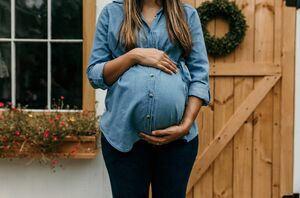Abortion
Conversion Therapy Ban tops Lords bill ballot

Following the King's Speech on 7 November, the private members' bill ballot took place in the House of Lords. Private members' bills are draft laws which are proposed by individual members of the Lords, rather than the government.
When a new parliamentary session starts, a ballot is held to allocate the order in which the first 25 bills will be introduced in the Lords.
This year, the results of the Lords ballot is as follows. Bills of particular interest to CARE are highlighted with the dates for First Reading shown as well (this is where the Bill is formally introduced. Second reading involves a whole House debate on the general principles of the legislation).
- Baroness Burt of Solihull: Conversion Therapy Prohibition (Sexual Orientation and Gender Identity) Bill - 20 Nov.
- Lord Northbrook: Succession to Peerages and Baronetcies Bill - 20 Nov.
- Lord Woodley: Employment and Trade Union Rights (Dismissal and Re-engagement) Bill - 21 Nov.
- Baroness Altmann: Alternative Investment Fund Designation Bill - 22 Nov.
- Lord Holmes: Artificial Intelligence (Regulation) Bill - 22 Nov.
- Baroness Kennedy: Genocide (Prevention and Response) Bill - 23 Nov.
- Lord Shinkwin: Workforce Information (Ethnicity) Bill - 27 Nov.
- Lord Moylan: Foetal Sentience Committee Bill - 27 Nov.
- Baroness Tyler: Schools (Mental Health Professionals) Bill - 27 Nov.
- Baroness Young: Commercial Organisation's and Public Authorities Duty (Human Rights and Environment) Bill - 28 Nov.
- Lord Bishop of St Albans: Coroners (Determination of Suicide) Bill - 28 Nov.
- Baroness Eaton: At Home Early Medical Abortion (Review) Bill - 29 Nov.
- Lord Bishop of Chelmsford: Asylum Application (Entry to the United Kingdom) Bill - 29 Nov.
- Baroness Boycott: Ecocide Bill - 30 Nov.
- Lord Hunt: Protection of Care Recipients and Carers Bill - 30 Nov.
- Lord Blencathra: Wheelchair Access Bill - 4 Dec.
- Lord Alton: Genocide Determination Bill - 4 Dec.
- Baroness Young: Heritage Trees Bill - 5 Dec.
- Lord Grocott: House of Lords (Hereditary Peers) (Abolition of By-Elections) Bill - 5 Dec.
- Lord Hendry: Status of Workers Bill - 6 Dec.
- Lord Scriven: Disestablishment of the Church of England Bill - 6 Dec.
- Lord Anderson: Public Service (Integrity and Ethics) Bill - 7 Dec.
- Baroness O'Loan: Abortion (Gestational Time Limit Reduction) Bill - 7 Dec.
- Baroness Benjamin: Still-Birth (Definition) Bill - 11 Dec.
How does the Lords ballot work?
The higher up the ballot a bill comes, the more time it will have for debate. A Lords private members' bill rarely makes it through all stages in the Lords, although it can be taken forward by an MP in the Commons.
However, in the Commons, Lords Private Members' Bills do not have priority over bills introduced in the Commons (whether by the government or an MP), so unless the government backs the bill, it will most likely not become law.
Peers use private members' bills to raise the profile of an important issue. If the bills has time for a second reading, this is especially helpful because it gives Peers from across the chamber the chance to debate the proposed bill and the government must give a response.
Reaction to the Ballot
On a positive note, there are three clear pro-life bills in the ballot. Each came in the top 25 which increases the likelihood of a second reading debate.
Abortion (Gestational Time Limit Reduction) Bill - drawn at no 24
This Bill aims to raise awareness about the fact the UK is out of step with the rest of Europe when it comes to the abortion time limit, currently 24 weeks for the vast majority of abortions.
Most European Union countries allow abortion up to 12 weeks. At this stage, the preborn baby is fully formed and all of his or her organs, muscles, limbs and bones are in place.
The last time the time limit was changed was 1990 when it was reduced from 28 to 24 weeks. Since then, medical technology and science has developed and our understanding of neonatal survival rates has improved.
At Home Early Medical Abortion (Review) Bill - drawn at no 13
During the covid-19 pandemic, a temporary change was allowed so women could take two powerful abortion pills at home.
Last year, MPs narrowly voted in favour of making this change permanent. In 2021, a study highlighted that more than 10,000 women had to receive hospital treatment following the use of medical abortion pills in England between April 2020 and September 2021.
Foetal Sentience Committee Bill - drawn at no nine
This Bill aims to highlight evidence around foetal development and sentience which proves the humanity of the preborn baby.
A 2020 report by the All Party Parliamentary Pro-Life Group on foetal sentience and apin summarised extensive developments in academic research that show it is likely babies can feel pain in the womb, possibly from as early as 12 weeks.
While preborn babies undergoing surgery for spina bifida from 20 weeks on the NHS receive pain relief, babies undergoing abortion via 'surgical dilation and evacuation' are not provided pain relief.
Positive to see three pro-life bills and no pro-assisted suicide bill
The fact there are three pro-life bills in the House of Lords ballot in the top 25 will help raise important issues to do with viability, foetal pain, abortion time limits and the safety of the current 'DIY abortion pills' scheme.
It was also encouraging to note that there was no pro-assisted suicide bill in the top 25 bills in the Lords ballot. In 2021, Baroness Meacher's assisted suicide bill was selected at number 7. It did receive a second reading and CARE worked with many Peers on arguing against the legislation.
Share
